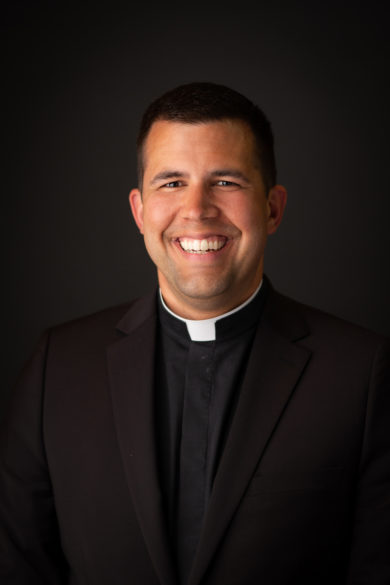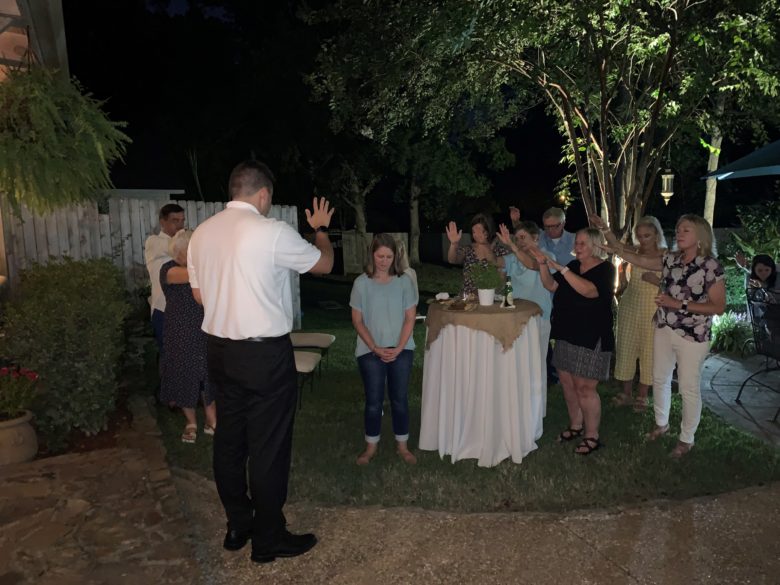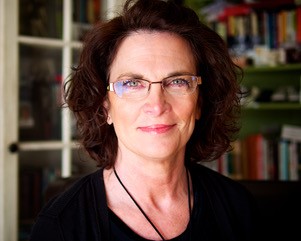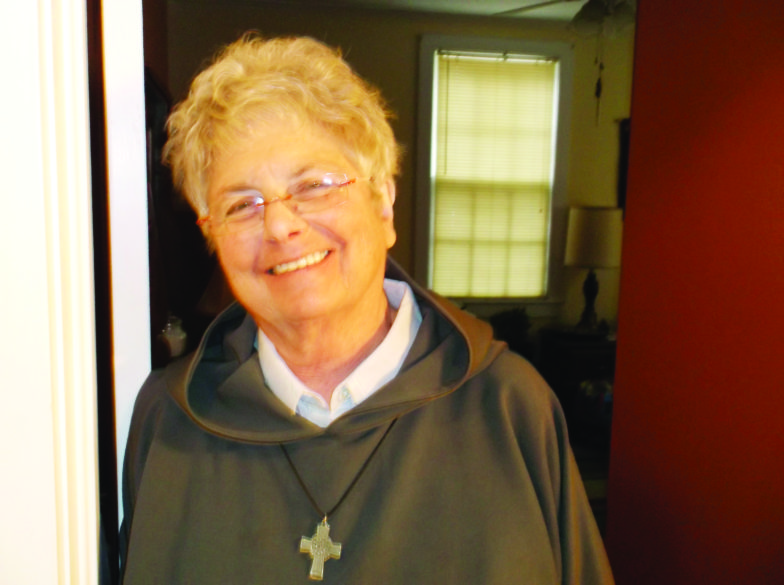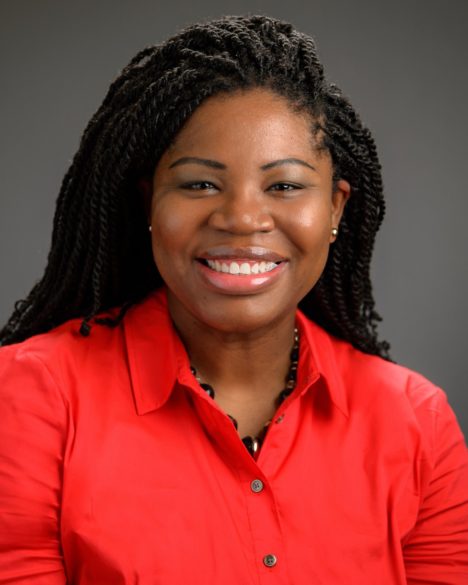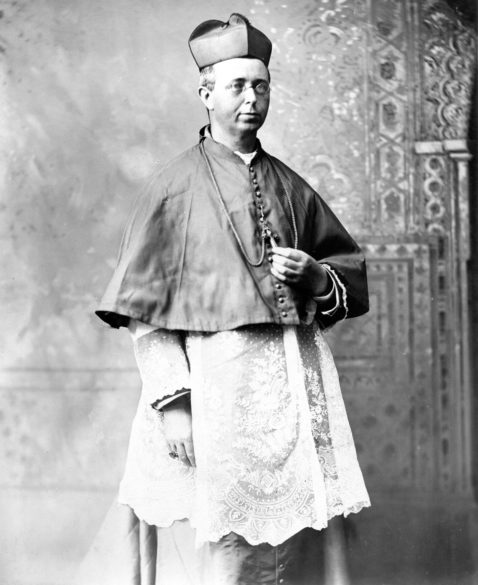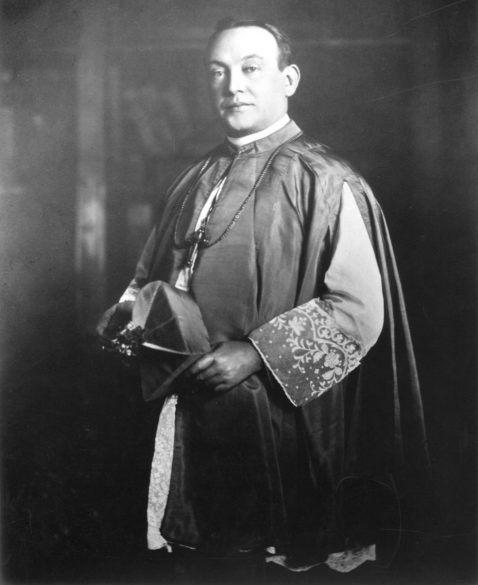From the Archives
By Mary Woodward
JACKSON – Rev. John Edward Gunn, a Marist priest and native of County Tyrone, Ireland, was appointed the sixth Bishop of Natchez by Pope Pius X in 1911. He was ordained a bishop at Sacred Heart Church in Atlanta where he was serving at the time on August 29 of that year.
Bishop Gunn was known as a brilliant orator and for having tremendous energy. He cultivated the diocese’s relationship with Catholic Extension to help in the building of chapels throughout the state. By the time of his death in 1924, almost every Catholic in Mississippi was able to reach one of these chapels for Mass at least once a month. Catholic churches grew from 75 to 149 during his administration, and Catholics grew in number from 17,000 to more than 31,000.
He also helped found St. Augustine Seminary with the Society of the Divine Word in Greenville for the formation of African American clergy in 1923. The seminary later moved to Bay St. Louis.
It is rumored that Bishop Gunn preferred Pass Christian to Natchez and had hoped to move the diocesan offices there.
Bishop Gunn’s 13 years of service to the Diocese were marked by the difficult four years of the first World War and the ravages of Spanish influenza.
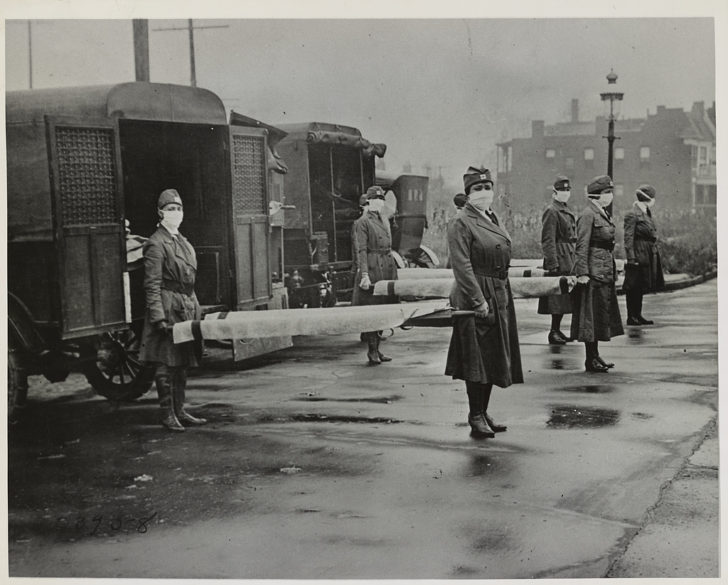
Not only was he a gifted orator, but he was a fine chronicler of daily life as is proven in his diary. From his diary we find an interesting entry from Nov. 8-10, 1918, that is very relevant to today’s pandemic atmosphere. It also contains a noteworthy bit of information about the end of the war.
“I left [Nov. 8] for St. Louis to assist at the consecration of the new Bishop of Galveston, Bishop Byrne. When I reached St. Louis, I got into the midst of the flu. Not only were the churches, schools, and public buildings closed but all the stores, soda water fountains and everything.”
“On Saturday night I walked the streets of St. Louis for more than an hour and could not buy a cigar and the question was – how could the consecration take place in St. Louis Cathedral on November 10th when it was forbidden to open a church door?”
“I went ‘round on Saturday night to see Archbishop Glennon and found Bishop Allen with him. The Archbishop seemed to take everything very quietly and said that it was forbidden to open the main door of the Cathedral but there were several other doors that were not officially closed, with the result that the consecration took place on Nov. 10. The crowd was small, the ceremonies were beautiful, the dinner was as heavy as the oratory and there was an atmosphere of unrest everywhere.”
“The papers were filled with the flu conditions of the country; the war conditions were reaching a climax, and everybody was on edge.”
“I left St. Louis on Sunday night [Nov. 10] and on my way home, at Fulton [Missouri], I thought that the world had come to an end. I was in the Pullman compartment when noise broke loose in the form of whistles, bells, bands and every kind of thing that could make a rattle and a screech at the time when ghosts are supposed to appear and graves yawn, etc.”
“It was occasioned by the fake news that had gone over the world that the Germans had signed the armistice. When the real news of the Armistice came nobody believed it.”
“I managed to get to New Orleans on the 11th and the city looked like the morning after Mardi Gras. The people had shouted themselves hoarse over the fake armistice and had no voice for the real one.”
Although WWI was a very complex time for those of Irish heritage due to British rule and treatment of them, the Bishop believed strongly in service to one’s country. “In life and death, I am proud of three things: my Irish birth, my Catholic faith, and my American citizenship,” he said. “I tried to translate my love for all three into service and sacrifice,” he wrote in his will.
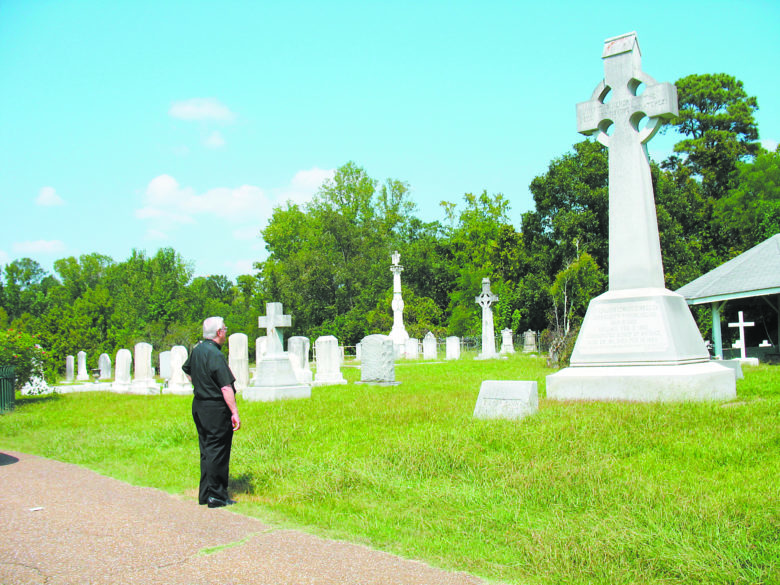
Bishop Gunn died at Hospital Hotel Dieu in New Orleans on Feb. 19, 1924, and is buried beside his fellow Irishman Bishop Thomas Heslin on Catholic Hill in the Natchez City Cemetery. His portrait hangs in the dining room of the Cathedral rectory in Jackson. As in any good portrait, Bishop Gunn’s eyes follow you as you move through the room.
In his will the Bishop also wrote, “I believe in God. I believe all He has said because He said it and because His infallible Church heard Him and told me what He said. I love Him with my whole heart and soul and strength and for His sake I love others.”
Bishop Gunn’s diary is so rich that we will share some more gems from it in the future.
(Mary Woodward is Chancellor and Archivist for the Diocese of Jackson)


